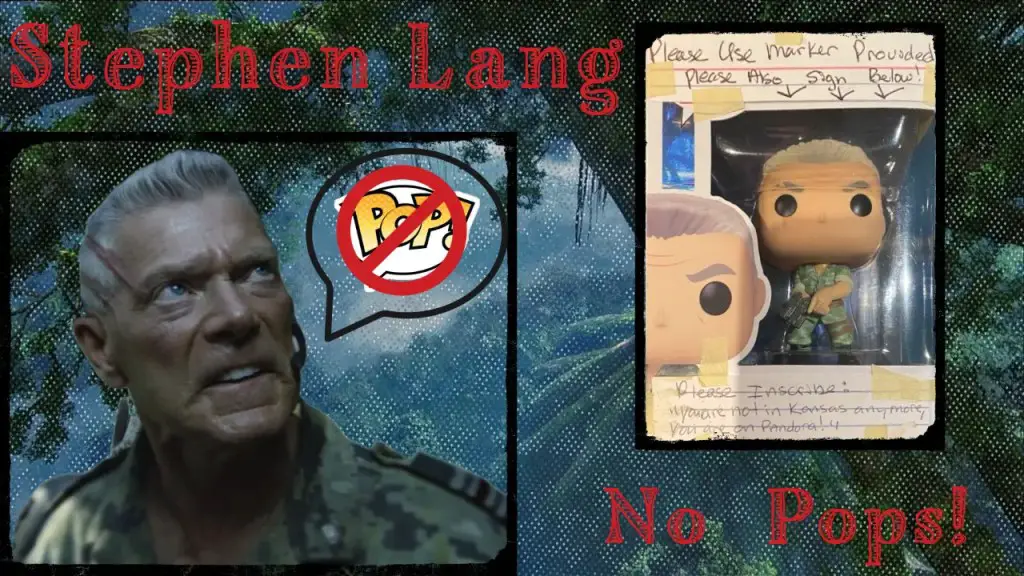On April 10th, Stephen Lang, the acclaimed actor best known for his role as Colonel Miles Quaritch in “Avatar”, recently took to Instagram to address a specific fan’s request. Lang shared a photo of a Funko Pop figure sent to him by an autograph-seeking fan.
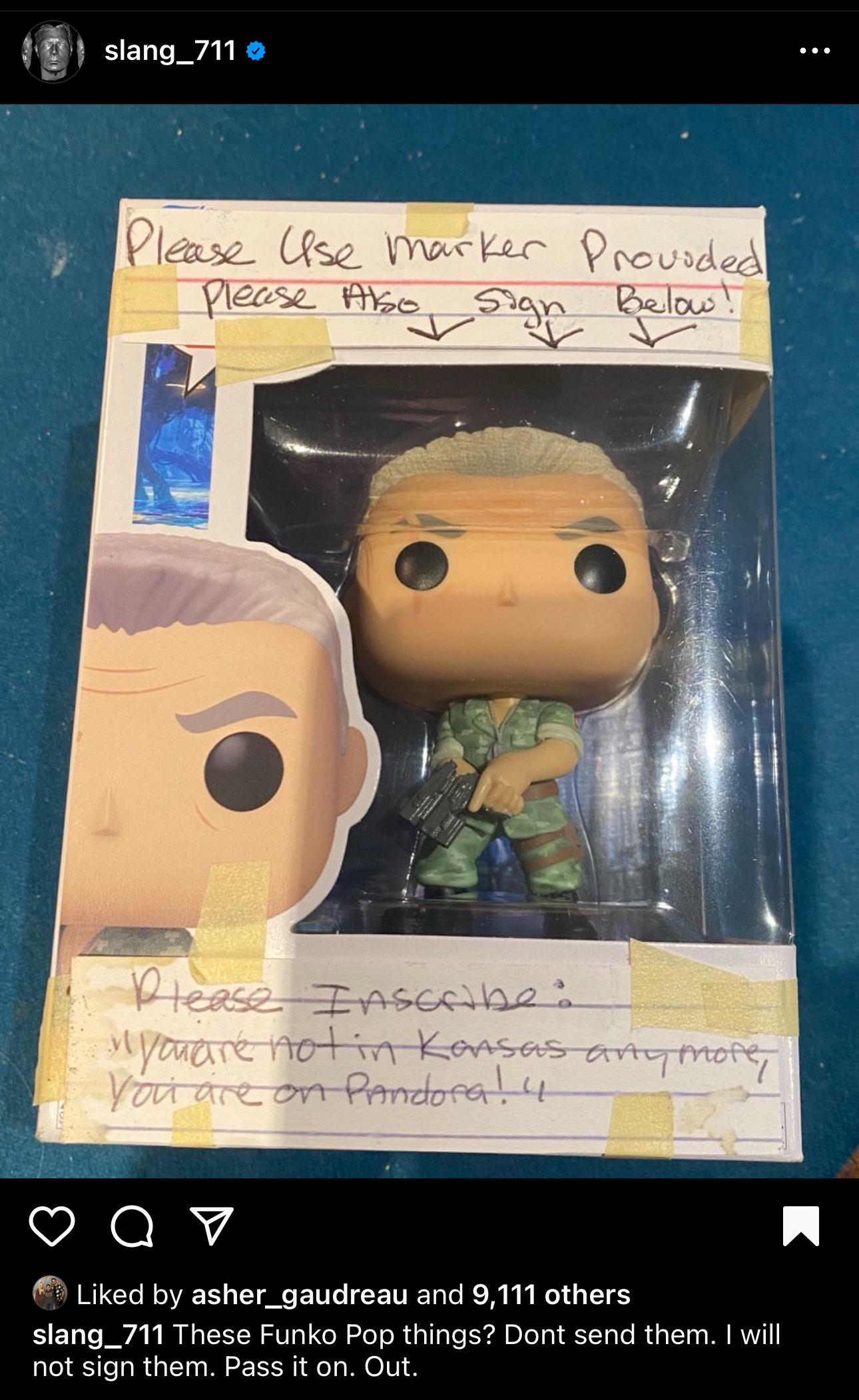
The Pop was labeled with a note asking for Lang’s signature on the front window along with a request for a specific quote from “Avatar”. His response was clear and unequivocal: “These Funko Pop things? Don’t send them. I will not sign them. Pass it on. Out.”
While the message was clear, the question of why still remains. This post has ignited varied reactions across the autograph collecting community, particularly among those engaged in “Through The Mail” (TTM) autograph collecting, a practice where fans send celebrities something to be signed through postal mail.
Diverse Fan Reactions and Underlying Concerns
Logistical Concerns
The handling and shipping of Funko Pops require special packaging and trips to the post office, as they do not fit in standard residential mail slots. This logistical challenge is not just about the effort but also the cost involved in processing larger items like Funko Pops.
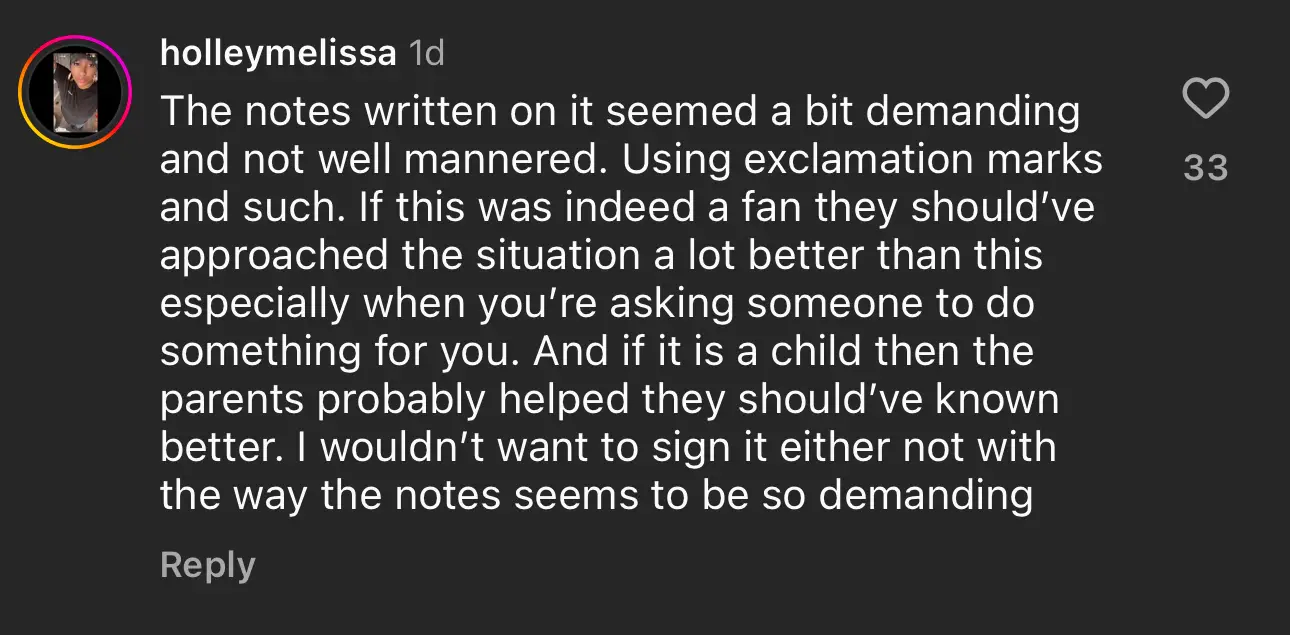
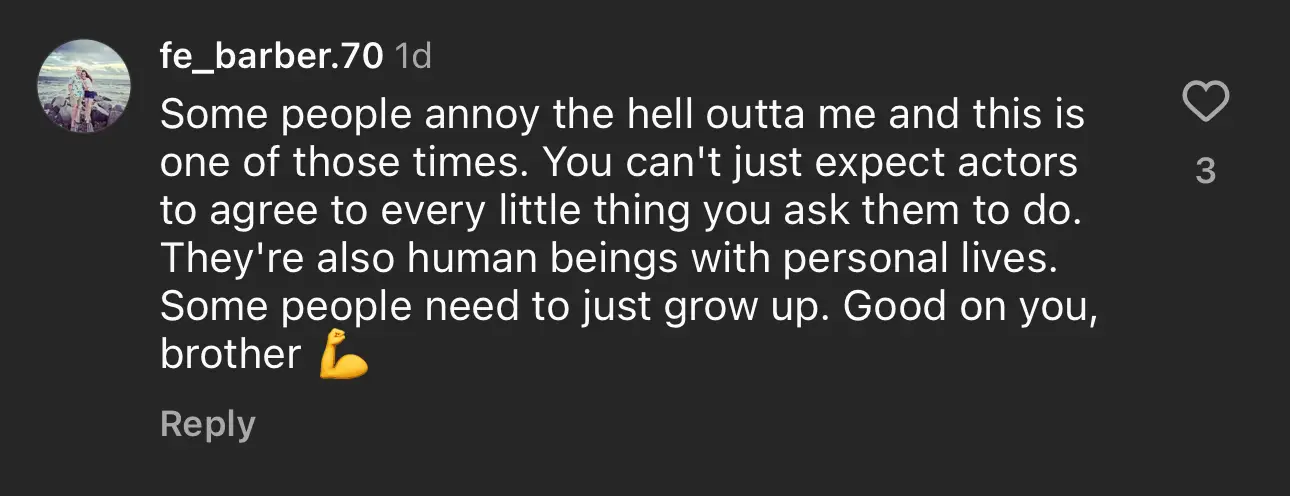
Demand in the Secondary Market
The value of autographed Funko Pops can be significantly higher on resale platforms such as eBay, where signed Funko Pops may sell for $40 to $80, compared to less than $10 for signed photos. This disparity can lead to feelings of exploitation among celebrities when items signed freely in good faith are sold for substantial profits.

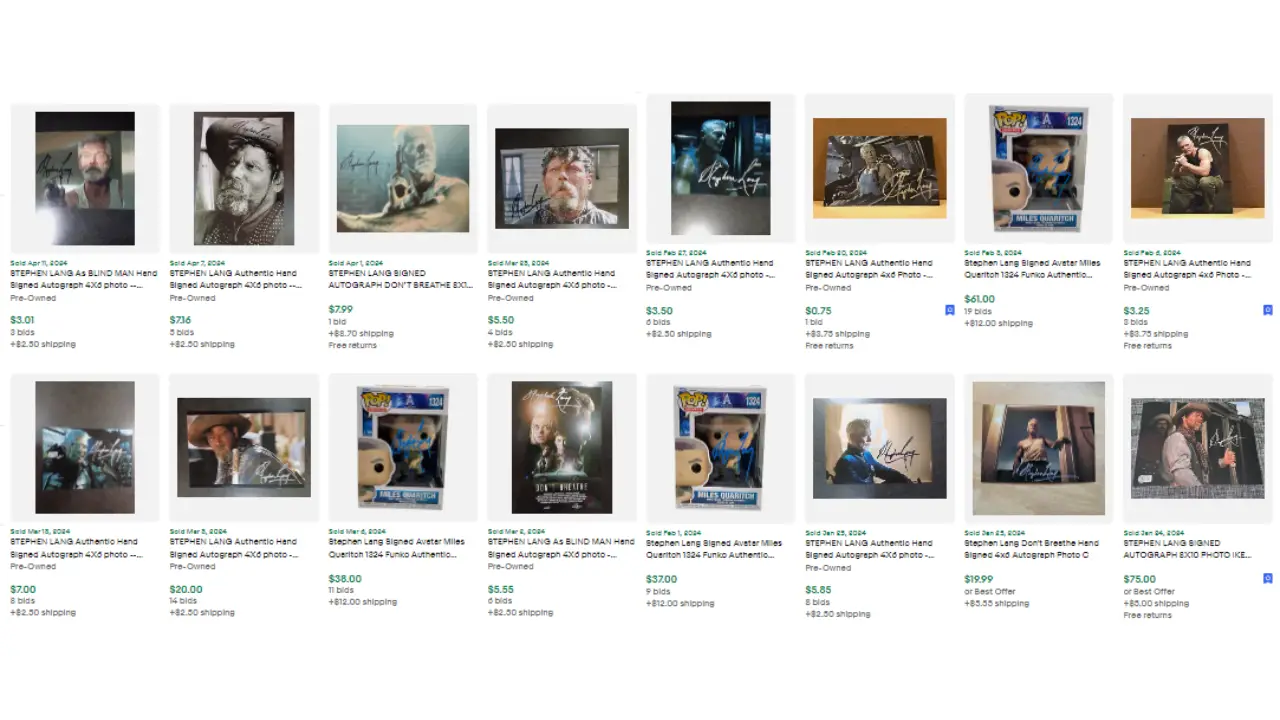
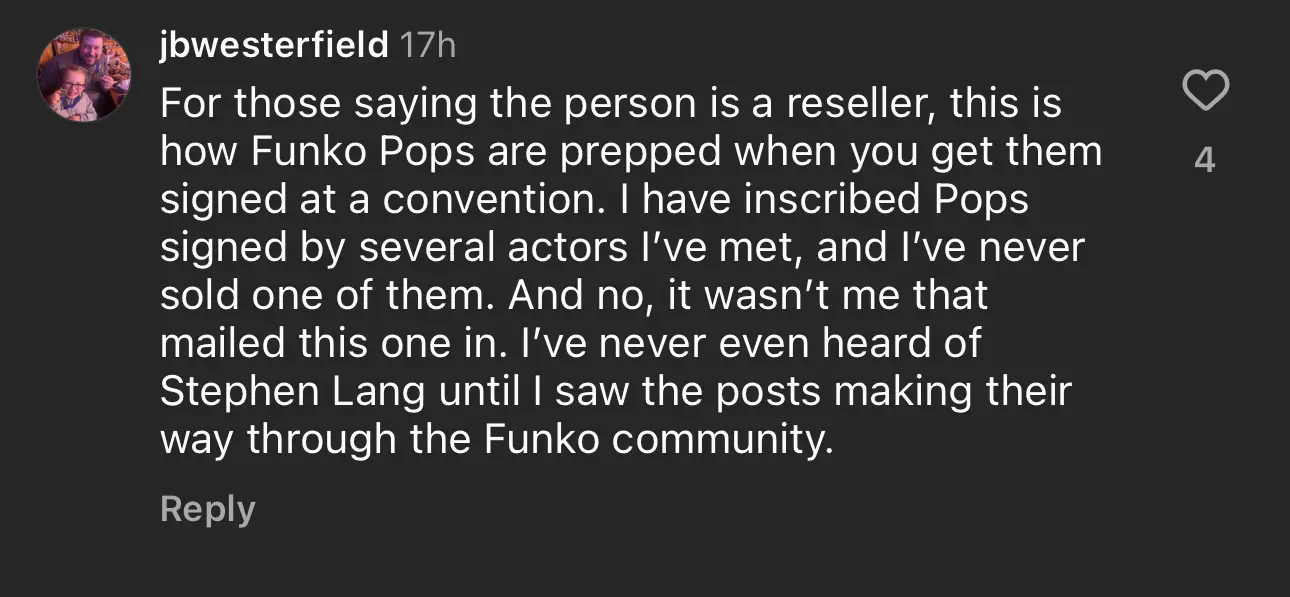
Potential Issues
Additional factors behind Stephen Lang’s refusal may include a personal dislike for Funko Pop aesthetics or a suspicion of insincere requests predominantly associated with these collectibles. The absence of explicit clarification from Lang leaves room for speculation about his motives.

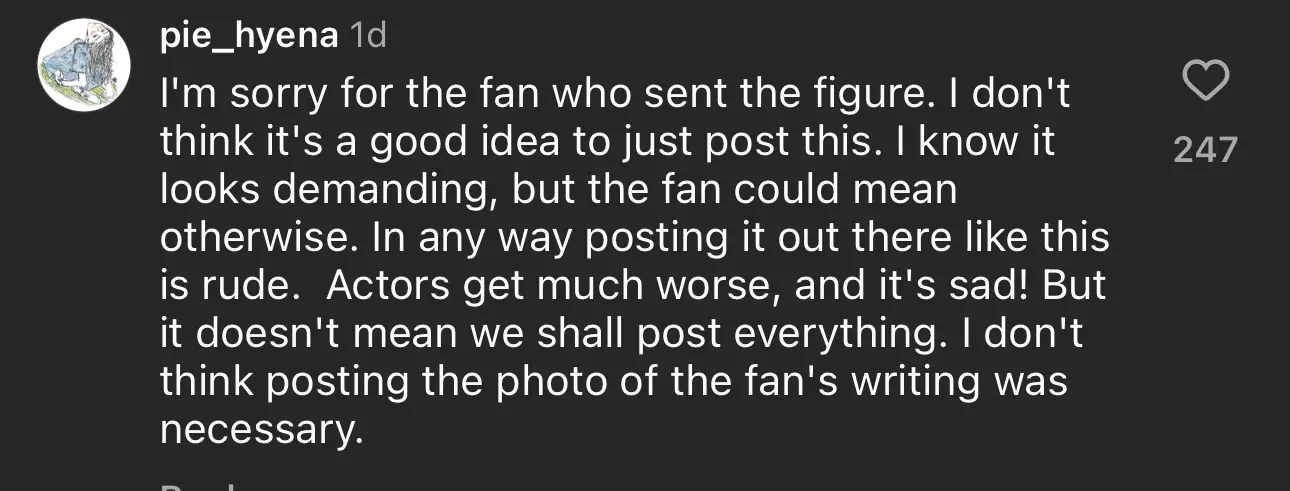
From a Genuine Fan’s Perspective
Not all fan requests are motivated by profit. Some, such as those from younger fans, are driven by a genuine admiration and the desire for a personalized keepsake from a beloved actor. However, when such requests are publicly rejected, it can be disheartening, especially if the fans are unaware of the broader implications of their requests.
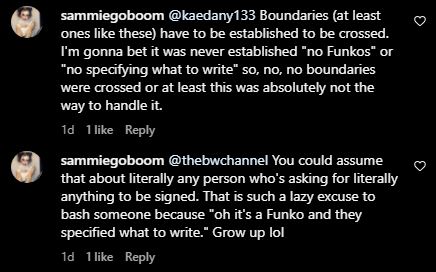
Understanding the impact of such public refusals is crucial. Fans often do not realize their requests might be viewed as intrusive or burdensome. This section of the fan base may need more communication about what is acceptable to request, potentially through fan groups or during celebrity interactions at conventions.

The response from celebrities to fan requests can significantly affect their perception and future interactions with fans, urging a sensitive approach to fan communications.
Impact on the Autograph Collecting Landscape
Stephen Lang’s decision highlights a growing concern in the autograph community—the potential for signer’s generosity to be exploited by resellers. Such practices, particularly prevalent on secondary markets like eBay, risk overshadowing the genuine connections fostered through TTM autograph collecting.
While communities such as the Tales From The Collection Facebook Group promote best practices and a strong community spirit, there’s an ongoing challenge with individuals who participate for profit rather than passion. Was that the case here? It’s difficult to determine due to the lack of context, but Lang’s selective refusal to sign Funko Pops suggests he’s still open to TTM autographing under the right circumstances. However, there remains a fear that continuous demands might lead him and others to withdraw from signing altogether, a trend that has been seen with other celebrities in the past.
Navigating Celebrity-Fan Dynamics in Autograph Collecting
This incident serves as a poignant reminder of the complexities in the relationship between celebrities and their fans, particularly within the context of autograph collecting. As this hobby evolves, both collectors and celebrities may need to adapt to ensure respectful and meaningful exchanges. This discussion is not just about a refusal but about the broader implications for fan-celebrity interactions and the evolving norms of collecting autographs through mail—a hobby cherished by many yet fraught with challenges.
